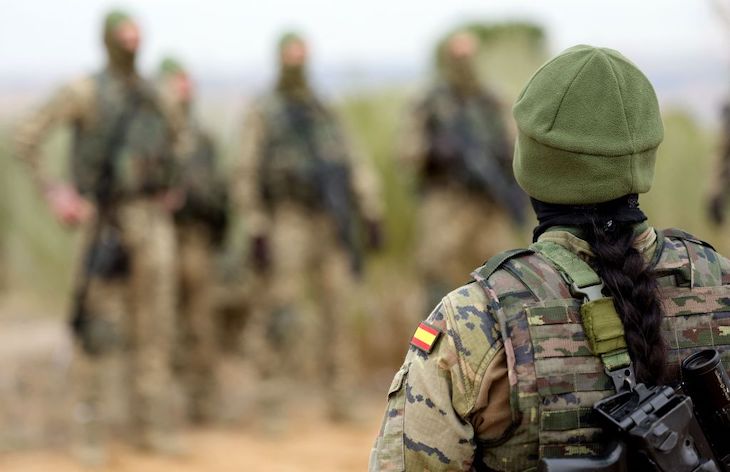Just a week after US Treasury Secretary Scott Bessent told Spain to spend more on defence, the country’s socialist prime minister, has unveiled a massive defence development initiative costing over ten billion euros (£8.5 billion). This new plan raises Spain’s defence budget from a mere 1.4 per cent of its GDP, the lowest amongst Nato’s 32 members, to Nato’s current target of two per cent.
When announcing the measure, prime minister Pedro Sánchez notably refrained from mentioning Bessent’s directive or US president Donald Trump’s pointed observation that ‘Spain is very low’ in defence spending. He did, however, frame the decision as a necessary response to new global realities:
‘We are facing a change of era that obliges us to take the reins of our own destiny.’
He added that in belatedly reaching Nato’s two per cent target, which was set in 2014, he was fulfilling a longstanding promise that previous governments had consistently failed to honour. Since Sánchez himself has now been prime minister for nearly seven years, this attempt to shift blame appeared, at best, a tad disingenuous.
Fully aware that increased defence spending would provoke backlash from the smaller, radical left-wing parties that are propping up his socialist government, Sánchez hastened to reassure them that, ‘Less than a fifth of the money is going to be spent on actual weapons in the traditional sense of the word.’ Instead, he explained, most of the funding will go toward increasing salaries and improving training and working conditions for military personnel, acquiring and upgrading equipment, enhancing cyber security, boosting emergency response capabilities for natural disasters and supporting troops involved in peace-keeping operations. Sánchez also promised that the money will be found without raising taxes or reducing ‘one cent of the money spent on the welfare state’. Moreover, he said, 87 per cent of the funding will flow directly to Spanish companies, creating thousands of jobs.
These attempts to sugar the pill didn’t, however, save him from the anger of his parliamentary allies. The reaction from the parties to his left was swift and sharp. One immediately labelled the plan ‘exorbitant’ and ‘incoherent’. Another said: ‘We oppose it…it has not been previously discussed or debated…and it does not reflect the spirit in which this Government was constituted in 2023.’
A third accused Sánchez of hypocrisy for ‘proclaiming three days of institutional mourning…for the death of a pacifist Pope and then, during those three days, announcing that ten billion euros more is to be spent on arms.’ Sánchez’s parliamentary allies were further incensed when they learned that the government was planning to purchase over six million euros’ (£5 million) worth of bullets from Israel, a move that they contend was effectively financing ‘genocide’. (Sánchez has since announced that that purchase will not go ahead.)
As if flak from the parties to his left wasn’t enough, Sánchez also came under fire from the main right-wing party for refusing to allow parliament a vote on the defence spending increase on the grounds that it involves ‘no greater budgetary effort’ since it will be financed through existing savings, carryovers and surpluses. The decision not to allow lawmakers to vote on the plan was, opposition leader Alberto Feijóo declared, ‘a brazen, undemocratic act unbefitting of a European country’.
Nor of course is Spain’s alacrity in doing Bessent’s bidding likely to satisfy Trump who has repeatedly accused Europe of freeloading off American military strength. The two per cent target that Spain is finally going to reach falls far short of the five per cent figure that Trump recently floated as a more appropriate benchmark. Sánchez is most unlikely to be able to find that sort of money – or even indeed meet the target of more than three per cent that Mark Rutte, Nato’s Secretary-General, has suggested will be approved at the Nato summit in The Hague in June – by shuffling existing funds between accounts.
The extra ten billion euros Sánchez has just promised to spend brings Spain closer to the contributions of fellow European Nato members, but his broader definition of defence to include, for example, cyber security and combatting climate change is unlikely to go down well with countries that see immediate military threats. Meanwhile, this dramatic increase in expenditure on the armed forces is far too much for his political allies in the Spanish parliament and far too little for Trump.







Comments